基于单片机的智能家居控制系统设计

1.无需注册登录,支付后按照提示操作即可获取该资料.
2.资料以网页介绍的为准,下载后不会有水印.资料仅供学习参考之用.
密 惠 保
基于单片机的智能家居控制系统设计(任务书,开题报告,外文翻译,论文18000字)
摘 要
随着物联网的迅速发展,传统家居已经不能满足人们的生活需求,智能家居随之孕育而生并蓬勃发展。本文针对传统窗帘只能手动升降这一问题,设计了一种基于单片机的智能窗帘控制系统。该系统可根据光照强度自动控制窗帘的升降,并具有定时功能和温度报警系统,此外红外远程遥控也在一定程度上给人们带来便利。
智能窗帘控制系统以单片机STC89C52为核心,利用光敏电阻和ADC0832构成光照强度检测模块,使用芯片DS1302构成时钟模块,通过传感器DS18B20对温度进行采集,液晶屏LCD1602则显示系统的时间、光照强度、温度以及控制模式,步进电机和ULN2003驱动芯片构成步进电机驱动模块,各模块相互配合实现窗帘的智能开关控制。
该系统经实验测试,具有成本低、结构简单、性能稳定、使用方便等优点,迎合大众需求,具有一定的市场价值。
关键词:单片机;智能窗帘;光照强度;定时功能
Abstract
With the rapid development of the Internet of Things, traditional homes can no longer meet the needs of people's lives, and smart homes have emerged and flourished. This paper designs a smart curtain control system based on single-chip microcomputer for the problem that traditional curtains can only be manually lifted. The system can automatically control the lifting and lowering of the curtain according to the light intensity, and has a timing function and a temperature alarm system. In addition, infrared remote control also brings convenience to people to a certain extent.
[资料来源:THINK58.com]
The intelligent curtain control system takes the single-chip STC89C52 as the core, and uses the photoresistor and ADC0832 to form the illumination intensity detection module. The chip DS1302 is used to form the clock module. The temperature is collected by the sensor DS18B20. The LCD screen LCD1602 displays the time, illumination intensity and temperature of the system. The stepping motor and the ULN2003 driver chip form a stepping motor drive module, and each module cooperates to realize the intelligent switch control of the curtain.
The system has been tested, and has the advantages of low cost, simple structure, stable performance, convenient use, etc., and meets the needs of the masses, and has certain market value.
Key Words:single chip microcomputer;smart curtain;light intensity;timing function
[资料来源:http://think58.com]
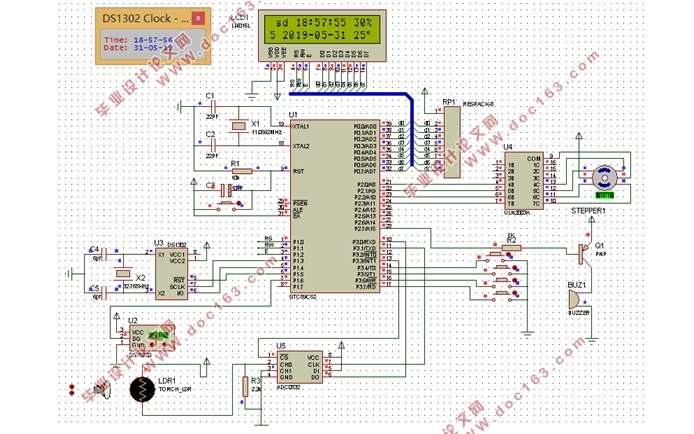
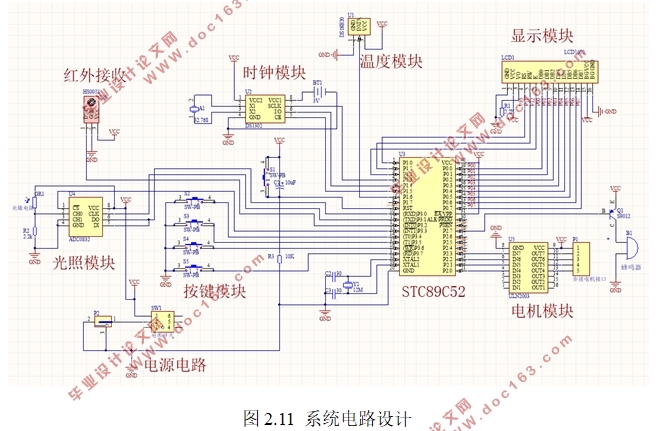
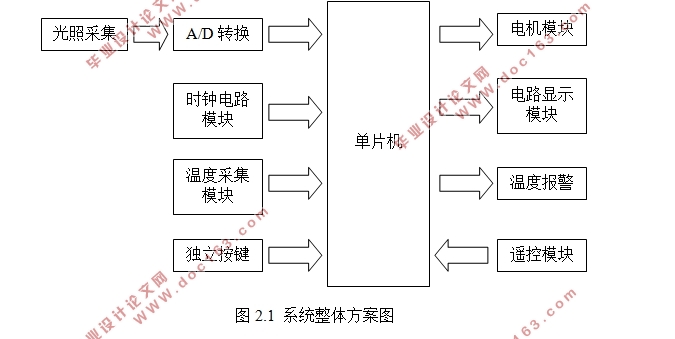
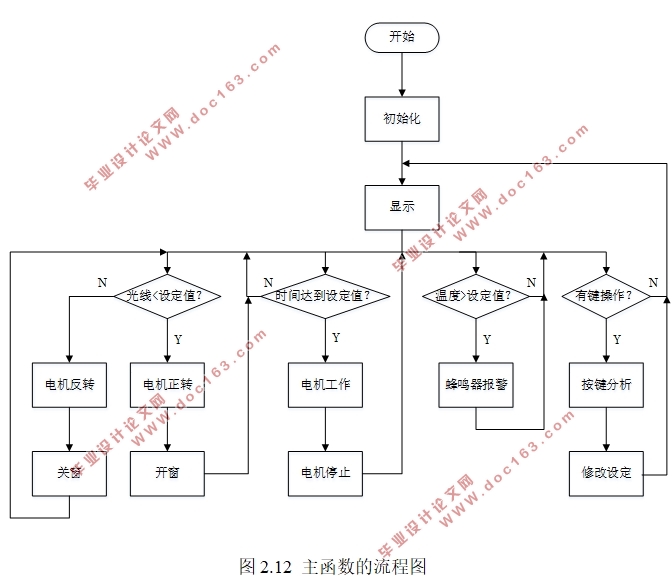
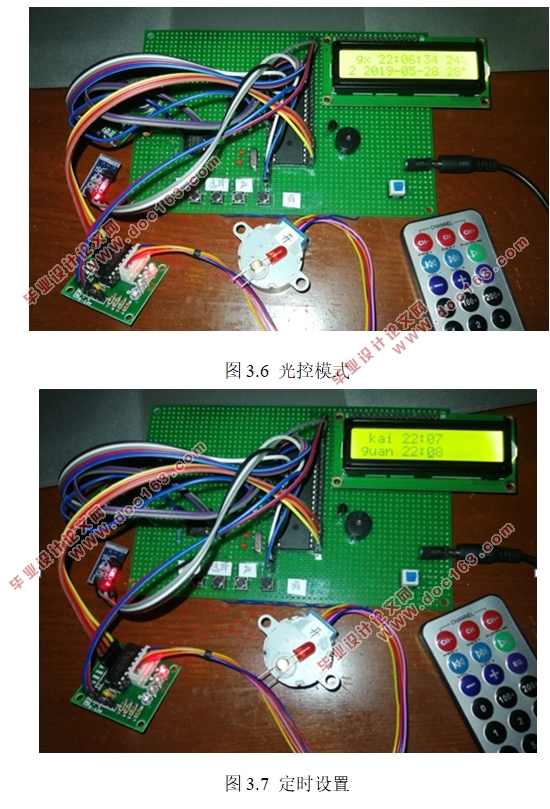
[资料来源:THINK58.com]
目 录
第1章 绪论 1
1.1 研究目的及意义 1
1.2 国内外研究现状 2
1.3 研究内容和目标 4
1.4 论文的组织结构 4
第2章 系统分析与设计 5
2.1 智能窗帘系统分析 5
2.2 智能窗帘系统结构 5
2.2.1 单片机芯片选择 6
2.2.2 温度采集模块设计 6
2.2.3 时钟模块设计 7
2.2.4 显示模块设计 7
2.2.5 按键模块设计 8
2.3 硬件电路设计 8
2.3.1 单片机STC89C52相关电路 8
2.3.2 时钟模块电路设计 10
2.3.3 光照采集电路设计 11
2.3.4 温度检测模块电路设计 12
2.3.5 显示模块电路设计 13
2.3.6 电机模块电路设计 13
2.3.7 红外遥控模块电路设计 14
[资料来源:http://think58.com]
2.3.8 系统整体电路设计 15
2.4 系统程序设计 15
2.4.1 主函数设计 16
2.4.2 系统智能控制算法 17
2.4.3 光照模块程序设计 18
2.4.4 温度模块程序设计 18
2.4.5 时钟模块程序设计 20
2.4.6 显示模块程序设计 21
2.4.7 电机模块程序设计 22
2.4.8 红外遥控程序设计 22
第3章 系统测试与分析 24
第4章 总结与展望 29
参考文献 30
致 谢 31
[资料来源:THINK58.com]
